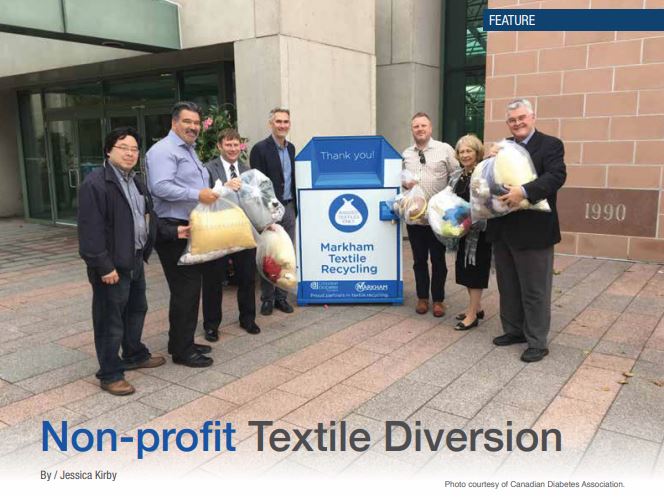
The whole country is talking about textile diversion. Leveraging the City of Markham’s successful program in this area (among others) the discussion is reaching a growing number of stakeholders, placing importance on the roles each has to play in diverting this enormous contributor to the waste stream.
Non-profit associations have a vital role to play in diverting textiles and other household items from the waste stream through strategic corporate partnerships and other initiatives. As programs find greater success across Canada, a key component is municipal partnerships that increase reach and community participation while helping achieve diversion goals and environmental objectives.
Canadian Diabetes Association (CDA) is a key player in the textile diversion market, providing pick-up of discarded textiles and household items and delivering them to resale and recycle streams through its partnership with Value Village Thrift Stores.
CDA collects items from drop-off bins, scheduled door-to-door collection, and Non-profit Textile Diversion community partnerships and is paid by Value Village, which has a sustainability department and sophisticated recycling services. Besides items sold in its stores, specific licenced partners specialize and reprocess certain items.
The majority of textiles are not made from organic materials and there is a long list of challenges in how to recycle them and really separate the fabrics and materials,” said Simon Langer, manager, government and strategic partnerships, national diabetes trust, CDA. “There are a number of conferences on the subject and interesting research into this happening overseas and in other places. In the Canadian context, we still need, from the government perspective, to keep an eye on building the infrastructure to recycle in a more meaningful way.”